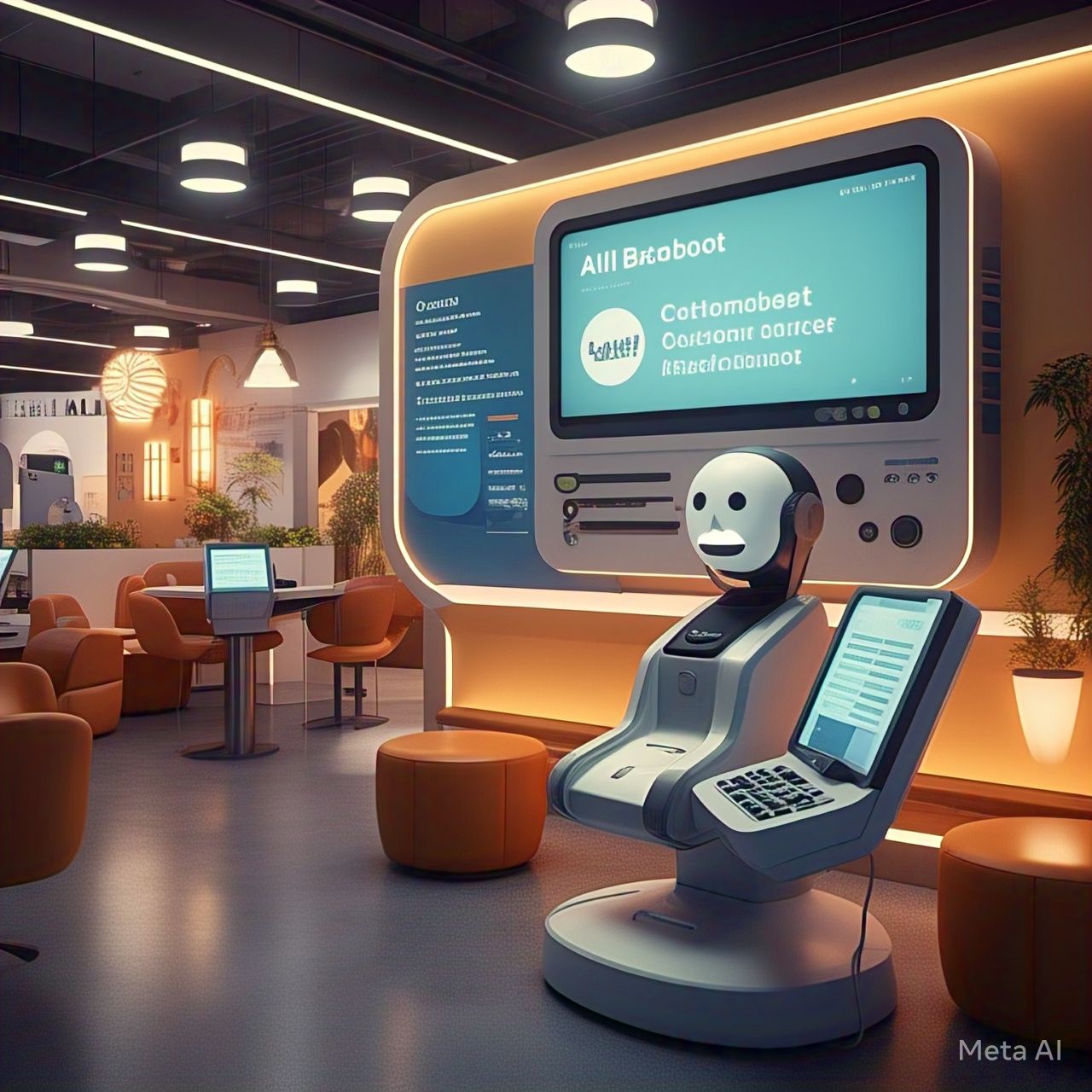Table of Contents
- Introduction
- What is Personalized Medicine?
- The Role of AI in Personalized Medicine
- How AI Analyzes Patient Data for Custom Treatments
- Benefits of AI-Driven Personalized Medicine
- Challenges and Ethical Considerations
- Real-World Applications of AI in Personalized Healthcare
- The Future of AI in Personalized Medicine
- Conclusion
- FAQs
Introduction
Artificial Intelligence (AI) is revolutionizing healthcare by enabling personalized medicine—customized treatments tailored to individual patients based on their genetic, environmental, and lifestyle factors. Instead of a one-size-fits-all approach, AI-driven medicine ensures that treatments are more effective, reducing side effects and improving patient outcomes. This article explores how AI is transforming personalized medicine, its benefits, challenges, and what the future holds for AI-driven healthcare.
What is Personalized Medicine?
Personalized medicine, also known as precision medicine, is a medical approach that tailors treatment and prevention strategies to individual patients. Key components include:
- Genomic Medicine: Using genetic information to determine disease risks and responses to treatments.
- Data-Driven Healthcare: Analyzing medical records, lifestyle data, and environmental influences.
- Predictive Analytics: AI models predicting disease progression and best treatment options.
With AI, doctors can design treatments that align with a patient’s unique biology, ensuring higher efficacy and fewer adverse reactions.
The Role of AI in Personalized Medicine
AI enhances personalized medicine through:
- Big Data Processing: Analyzing vast medical datasets to identify patterns.
- Machine Learning (ML) Algorithms: Predicting individual responses to treatments.
- Natural Language Processing (NLP): Extracting valuable insights from patient records and medical literature.
- Deep Learning in Genomics: Interpreting genetic mutations and their impact on diseases.
- AI in Drug Development: Discovering new drugs and personalizing prescriptions.
How AI Analyzes Patient Data for Custom Treatments
AI processes patient data in several ways:
1. Genetic Analysis
- AI deciphers DNA sequences to detect genetic predispositions to diseases.
- Personalized cancer treatments based on genetic mutations.
2. Electronic Health Records (EHR) Analysis
- AI scans patient histories to determine effective treatment strategies.
- Predicts drug interactions and adverse reactions.
3. Wearable and IoT Data Integration
- AI collects real-time health data from smartwatches, fitness trackers, and sensors.
- Monitors patient vitals and predicts potential health risks.
4. Medical Imaging Interpretation
- AI enhances radiology and pathology by identifying disease markers.
- Helps diagnose conditions like cancer, heart disease, and neurological disorders.
Benefits of AI-Driven Personalized Medicine
| Benefit | Description |
|---|---|
| Improved Treatment Effectiveness | AI identifies the best treatments based on individual patient data. |
| Reduced Side Effects | Personalized drugs and therapies minimize adverse reactions. |
| Early Disease Detection | AI predicts disease risks before symptoms appear. |
| Faster Drug Development | AI accelerates research by analyzing vast medical data. |
| Optimized Healthcare Costs | More efficient treatments reduce hospital visits and medical expenses. |
| Enhanced Patient Engagement | AI-powered recommendations encourage proactive health management. |
Challenges and Ethical Considerations
1. Data Privacy and Security
- AI relies on sensitive patient data, raising concerns about privacy and cybersecurity.
- Regulations like HIPAA and GDPR ensure patient data protection.
2. Bias in AI Algorithms
- AI models trained on biased datasets may lead to unequal healthcare outcomes.
- Ensuring diverse and representative data is crucial.
3. Regulatory and Legal Challenges
- AI-powered medical decisions require regulatory approvals.
- Legal responsibility for AI-driven treatment recommendations remains unclear.
4. Integration with Existing Healthcare Systems
- Hospitals must adapt infrastructure to support AI-driven solutions.
- Training healthcare professionals to use AI effectively.
Real-World Applications of AI in Personalized Healthcare
1. AI in Oncology (Cancer Treatment)
- AI predicts the most effective chemotherapy based on a patient’s genetic profile.
- IBM Watson and Tempus use AI to analyze cancer patient data for personalized treatment.
2. AI in Cardiovascular Disease Management
- AI assesses heart disease risks and recommends lifestyle modifications.
- AI-powered wearables monitor heart rate and detect arrhythmias.
3. AI in Diabetes Management
- Personalized insulin recommendations based on blood sugar levels.
- AI-powered glucose monitoring systems like FreeStyle Libre.
4. AI in Neurological Disorders
- AI detects early signs of Alzheimer’s, Parkinson’s, and epilepsy.
- Personalized treatments to slow disease progression.
5. AI in Pharmacogenomics
- AI predicts how individuals respond to specific drugs.
- Personalized prescriptions based on genetic compatibility.
6. AI in Mental Health Treatment
- AI-driven chatbots like Woebot provide personalized mental health support.
- Predictive analytics identify early signs of depression and anxiety.
The Future of AI in Personalized Medicine
1. AI-Powered Digital Twins
- Creating virtual models of patients for treatment simulations.
- Predicting treatment outcomes before actual implementation.
2. Advancements in AI Drug Discovery
- AI will accelerate drug development by identifying molecular compounds faster.
- AI-driven precision medicine will create personalized drugs for rare diseases.
3. Decentralized AI-Driven Healthcare
- AI-powered home diagnostics for real-time health monitoring.
- Reduced dependence on traditional hospital visits.
4. AI in Preventive Healthcare
- AI-driven wellness programs offering lifestyle-based health recommendations.
- Early intervention strategies for at-risk individuals.
Conclusion
AI-powered personalized medicine is transforming healthcare by tailoring treatments to individual patients. With advancements in genomics, predictive analytics, and wearable technology, AI enhances disease detection, treatment precision, and patient engagement. While challenges such as data privacy, bias, and regulatory approvals remain, the future of AI-driven personalized medicine promises better healthcare outcomes, reduced costs, and improved quality of life. As AI continues to evolve, medicine will become more personalized, predictive, and proactive.
FAQs
1. How does AI contribute to personalized medicine?
AI analyzes genetic, medical, and lifestyle data to create tailored treatment plans for individuals.
2. Can AI predict diseases before they develop?
Yes, AI uses predictive analytics to identify disease risks based on patient data and genetic markers.
3. What role does AI play in drug discovery?
AI accelerates drug development by identifying potential compounds and predicting their effectiveness in patients.
4. Is AI-driven personalized medicine safe?
Yes, AI-driven medicine is backed by rigorous testing, but human oversight is crucial to ensure safety and ethical use.
5. Will AI replace doctors in personalized medicine?
No, AI enhances medical decision-making but cannot replace the expertise and judgment of human doctors.
Citations:
- Johnson, M. (2023). AI in Personalized Medicine: A Revolution in Healthcare. AI & Health Journal.
- Patel, R. (2022). Machine Learning in Genomics: Tailoring Treatments for Patients. Medical AI Reports.
- Chang, S. (2023). Precision Medicine and AI: Transforming Drug Development and Patient Care. AI & Medicine Review.





